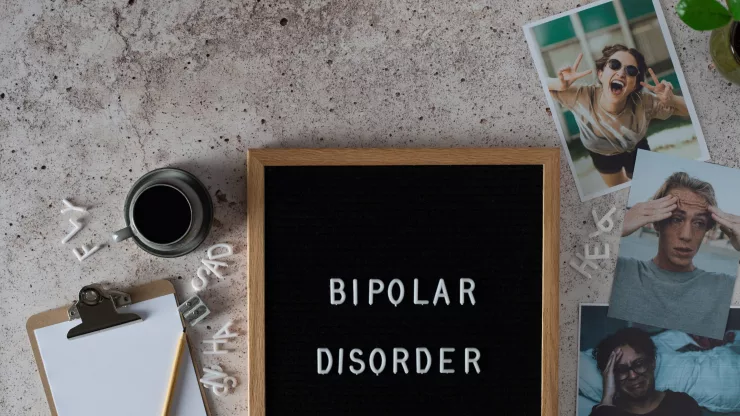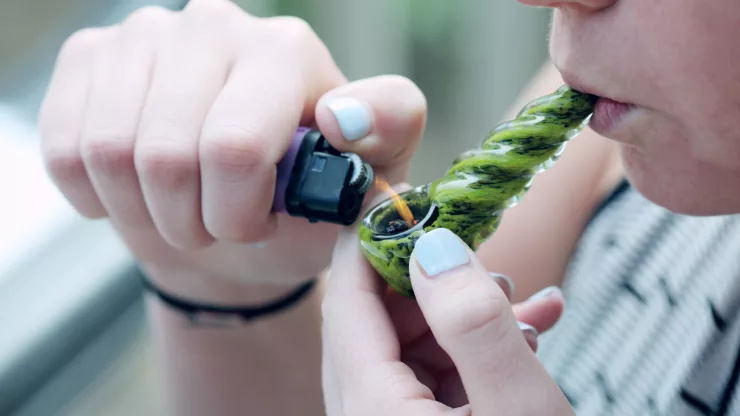Living with Bipolar Disorder
Living with bipolar disorder can be challenging. This mental health condition affects a person’s mood, energy, and ability to function.
People with bipolar disorder experience extreme mood swings that can range from depression to mania. These mood swings can disrupt their daily lives, relationships, and work.
However, with the right treatment and support, people with bipolar disorder can lead fulfilling lives. In this article, we will explore well-being strategies for individuals with bipolar disorder.
Jump to Section
Understanding Well-being and its Importance
Well-being refers to a person’s overall state of happiness, health, and satisfaction with life.
It is essential for people with bipolar disorder to prioritize their well-being because their condition can affect their mental and physical health.
Well-being strategies can help individuals with bipolar disorder manage their symptoms, reduce stress, and improve their quality of life. Some of the benefits of well-being strategies include:
- Improved mood and energy levels
- Reduced anxiety and stress
- Better sleep quality
- Increased ability to cope with challenges
- Enhanced sense of purpose and meaning in life
Creating a Personalized Well-being Plan
Creating a personalized well-being plan can help individuals with bipolar disorder identify their specific needs and goals. A well-being plan can include strategies for managing symptoms, improving self-care, and building a supportive network.
Here are some steps to creating a personalized well-being plan:
- Identify your strengths, challenges, and goals.
- Identify strategies that have worked for you in the past.
- Identify new strategies that you want to try.
- Prioritize the strategies that are most important to you.
- Create a plan that includes specific actions, timelines, and resources.
- Review and adjust your plan regularly.
Mindfulness and Self-care Techniques
Mindfulness and self-care techniques can help individuals with bipolar disorder manage their symptoms, reduce stress, and improve their well-being.
Mindfulness is the practice of being present in the moment and accepting one’s thoughts and emotions without judgment.
Self-care refers to activities that promote physical, emotional, and mental health. Here are some mindfulness and self-care techniques to try:
- Meditation or deep breathing exercises
- Yoga or other forms of exercise
- Spending time in nature
- Journaling or creative expression
- Eating a healthy diet and getting enough sleep
- Practicing good hygiene and self-care habits
The Role of Medication and Therapy
Medication and therapy are important components of treatment for bipolar disorder. Medication can help stabilize mood and reduce symptoms of bipolar disorder.
Therapy can help individuals with bipolar disorder develop coping skills, improve relationships, and manage stress. It is essential to work with a healthcare provider to find the right medication and therapy for your needs.
Here are some common types of medication and therapy for bipolar disorder:
- Mood stabilizers such as lithium or valproic acid
- Antipsychotic medication such as olanzapine or risperidone
- Cognitive-behavioral therapy (CBT) or psychotherapy
- Family therapy or support groups
Building a Supportive Network
Building a supportive network can help individuals with bipolar disorder feel less isolated and more connected to others. A supportive network can include family, friends, healthcare providers, and support groups.
Here are some tips for building a supportive network:
- Identify people who are supportive and understanding of your condition.
- Communicate your needs and boundaries clearly.
- Seek out peer support groups or online communities.
- Educate your loved ones about bipolar disorder and how they can support you.
- Consider involving a mental health professional in your support network.
FAQ
How can I manage my mood swings?
Managing mood swings requires a combination of medication, therapy, and self-care techniques. It is essential to work with a healthcare provider to find the right treatment for your needs.
Mindfulness techniques such as meditation or deep breathing exercises can also help manage mood swings.
What should I do if I experience a manic episode?
If you experience a manic episode, it is important to seek medical attention immediately. Manic episodes can be dangerous and require prompt treatment.
It is also important to have a plan in place for managing manic episodes, which can include medication adjustments and support from loved ones.
How can I build a supportive network?
Building a supportive network requires reaching out to people who are understanding and supportive of your condition. Peer support groups, online communities, and family and friends can all be part of your support network.
It is important to communicate your needs and boundaries clearly and to educate your loved ones about bipolar disorder.

With a deep passion for personal development, Ben has dedicated his career to inspiring and guiding others on their journey towards self-improvement.
His love for learning and sharing knowledge about personal growth strategies, mindfulness, and goal-setting principles has led him to create My Virtual Life Coach.
Contact Ben at [email protected] for assistance.




